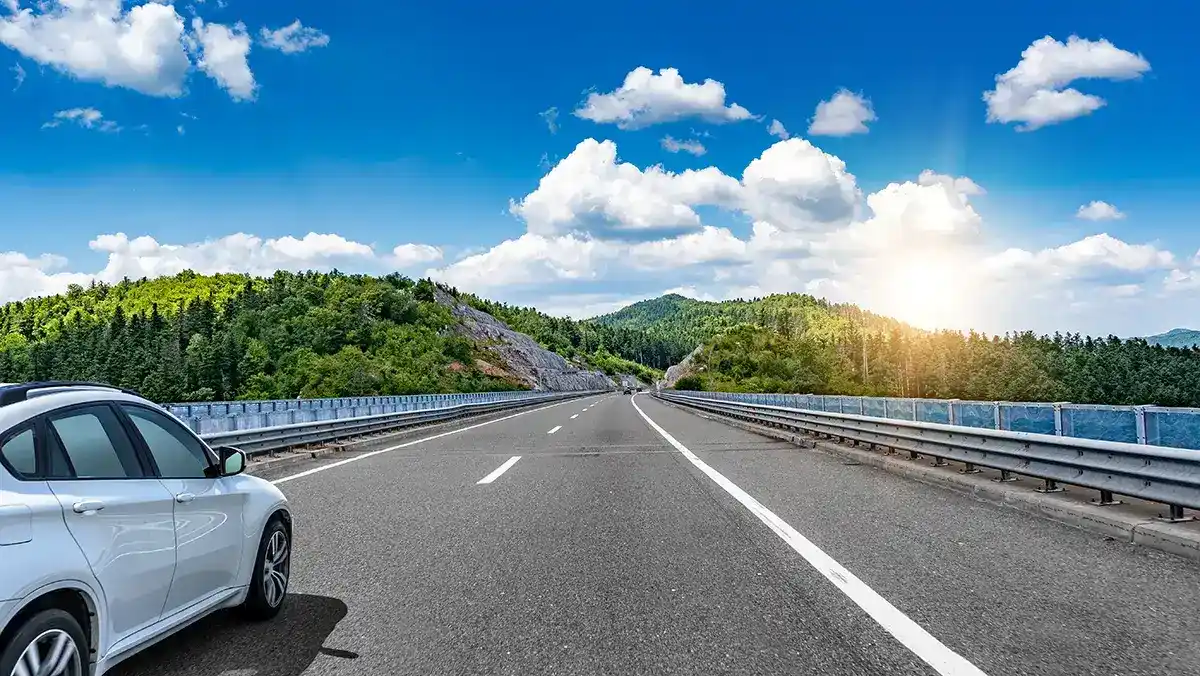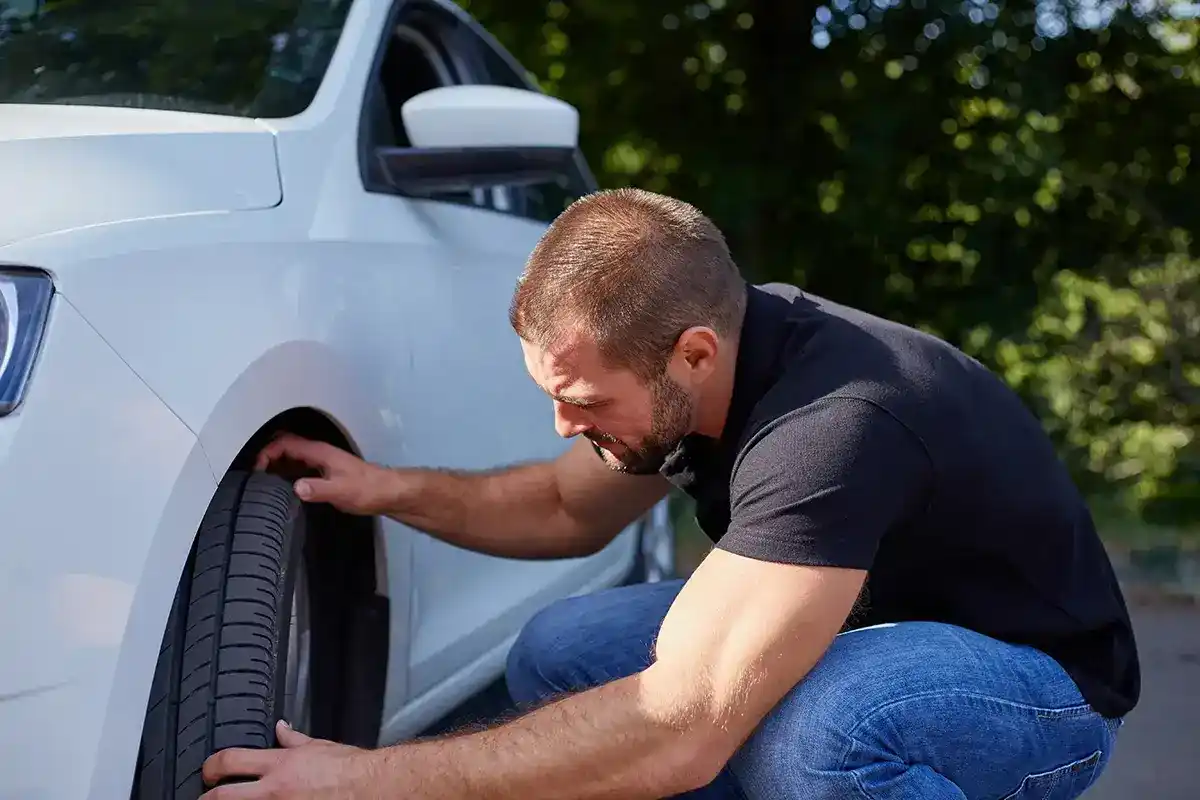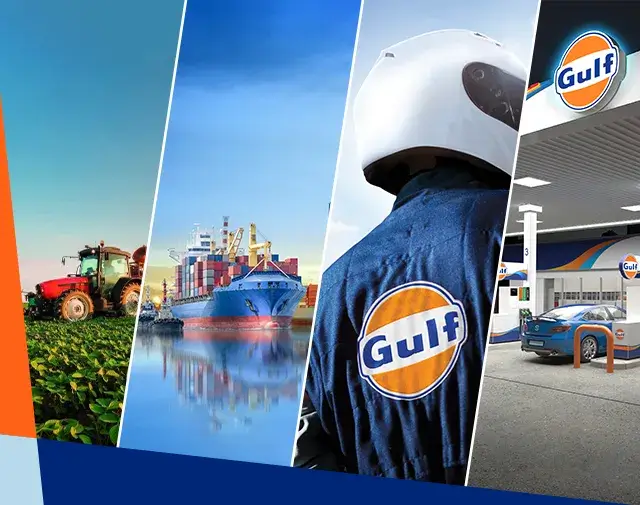6 Tips to improve fuel economy from your car
15 Apr 2023

Cars are an essential part of modern life for many and with petrol (gasoline) and diesel prices subject to fluctuation – and concerns about climate change - many people look for ways to reduce their fuel consumption. So, how can you increase the kilometres-per-litre or miles-per-gallon your car delivers?
At Gulf Oil, we’ve over a century’s experience creating trusted oils, lubricants and fluids for cars, motorcycles, trucks and other vehicles so, we’ve taken a look at six practical tips you can apply to improve the fuel economy from your petrol (gasoline), diesel or self-charging hybrid vehicle:
1. Drive smoothly
It is when your vehicle is accelerating (gaining speed) that it typically uses most fuel. Your car requires more energy to increase speed than it does to maintain it. Limiting the rate at which you gain speed can increase the distance you travel for every litre or gallon of fuel used. Avoiding hard acceleration is generally easiest when you plan your journey to minimise the number of times you are required to slow down and accelerate - such as congestion, junctions, interchanges or traffic lights. A smooth route on a constant speed road is best.
It’s important to anticipate road conditions too. For example, the sooner you spot an upcoming obstacle, the more gradually you can slow, maintain a steady speed and then accelerate slowly once the danger is passed. For good fuel economy, it is also best to avoid periods when your vehicle’s engine is idling (running without moving). Many modern vehicles include stop-start technology which cuts the engine’s ignition when you stop and restarts it when you wish to pull away. Alternatively, if you’re likely to be stationary for more than a minute or two, you could manually stop the engine and restart when needed.
2. Limit your speed
The faster your vehicle goes, the more wind resistance (aerodynamic drag) it experiences and the more fuel it requires to maintain speed. In general, around 80-100 kph (50-60 mph) offers the best balance between making good progress on your journey and maintaining good fuel economy. Higher speeds on interstates, motorways or expressways can dramatically reduce fuel economy, especially if your vehicle is large, heavy or has a small engine which is working hard. Using cruise control can help maintain a smooth and economic speed, particularly on multi-lane highways and roads. Driving in a high gear will typically improve fuel economy. The lower the engine speed (rpm or revs) you are able to maintain, the less fuel the engine will consume at a steady speed.
If your vehicle has an automatic transmission (gearbox), you can select the standard or economy mode which will ensure it changes up to the next gear as soon as the vehicle is able. If your vehicle has a manual transmission (gearbox), you can change up earlier yourself. Many modern cars will indicate when you should change gear, helping you increase fuel economy. However, don’t let the vehicle labour (struggle for power) in a gear that is too high for the conditions, as this can inadvertently reduce fuel economy.
3. Limit air-con use
The air conditioning within your car works on the same principle as a domestic refrigerator and consumes electricity produced by the engine to cool the air in the vehicle’s cabin.
The more air conditioning (cooling) you require, the more petrol (gasoline) or diesel your engine will consume to provide the necessary energy.
It is wise to use your air conditioning sparingly. Maintain a comfortable environment but consider taking off a layer of clothing rather than reaching for the temperature dial.
Many vehicles include an economy setting or enable you to turn the A/C off so it simply recirculates fresh air from outside and conserves fuel.
At slower speeds, opening the windows of your vehicle may provide cool air from outside. However, be careful not to have the windows open at higher speeds as this can affect the vehicle’s aerodynamics and result in more fuel being used.

4. Check your tyre pressures
Your vehicle’s tyres keep you in contact with the road, providing grip and soaking up some of the bumps and undulations.
However, in doing so, they also create friction. The greater this resistance to the road, the more fuel your vehicle will use to maintain speed. All tyres are provided with a manufacturer’s tyre pressure recommendation which gives the best balance of grip, comfort, long-life and fuel economy.
If the tyre pressure is too low, it can result in more friction and lower fuel economy. If the pressure is too high, it can result in a harsh ride and increased tyre wear.
Check your tyres every few weeks to maintain the recommended pressure. Modern tyres have an economy rating which indicates their overall impact on fuel efficiency. By choosing a higher economy rating when replacing your tyres, you will be able to increase the distance you travel per litre or gallon of fuel.
5. Remove excess weight and drag
It takes a lot of energy to accelerate a family car and maintain a steady speed. The lighter the vehicle, the easier it is for the engine and the less fuel it requires. If your boot, trunk or passenger seats are full of items, it can make the vehicle heavier and reduce fuel economy. So, consider what you are carrying and remove anything which is unnecessary. However, it is not recommended that you remove safety items such as your spare wheel. This could be inconvenient or dangerous if you suffer a puncture and may be against the law in some countries. Items such as roof racks, roof boxes, bull bars or extended wing mirrors (for towing) can also affect your vehicles aerodynamics and increase drag. Removing them when not in use will again encourage better fuel economy.
6. Service and maintain your car with the right lubrication
A petrol (gasoline), diesel or hybrid engine is full of moving parts. Any friction between these parts can be harmful and requires more energy for the engine to overcome. Lubrication reduces friction and thus helps increase fuel economy, as well as improving the life of your vehicle. At Gulf Oil, we’ve been developing and manufacturing trusted car, motorcycle, van, truck and commercial vehicle lubricants for over 100 years. Today, our extensive range of oils and other lubricants help improve both protection and fuel economy and carry many approvals from top-line manufacturers.
Keeping your vehicle serviced and maintained is very important for good fuel economy. As well as the lubrication of your engine and transmission (gearbox), renewing your air and oil filters, replacing sparkplugs and maintaining bearings and lubrication in moving parts of your vehicle’s chassis, can all help improve fuel economy.
Boost your fuel economy with Gulf
By following these six simple tips, most motorists will be able to increase the number of kilometres or miles they achieve from a full tank of petrol (gasoline) or diesel. By choosing Gulf engine oil lubricants, you can also help maintain the health and life of your engine, whilst encouraging better fuel economy. Find out more about our range of car oils and lubricants...

